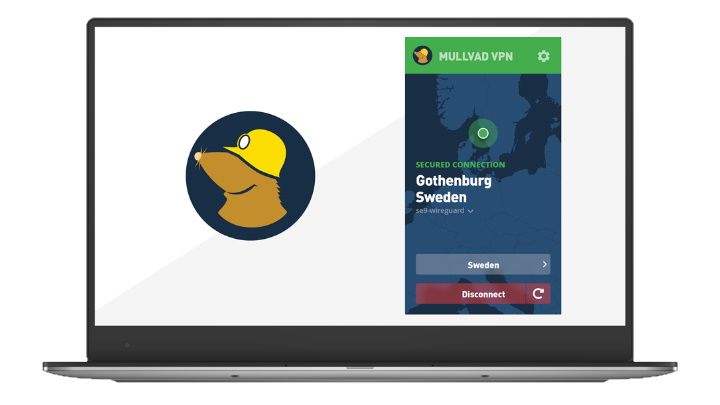One of the best VPN services on the market just revealed new advanced security features, beefing up its defense against some of the most pressing online threats.
On October 25, 2024, Mullvad VPN unveiled expanded protections against AI surveillance and censorship in two separate announcements. The newly launched DAITA feature, short for Defense against AI-guided Traffic Analysis, is now also available for its Android VPN app – previously, only Windows, macOS, and Linux users could use it. At the same time, the provider added Shadowsocks obfuscation technology to the WireGuard VPN protocol for its Android and desktop apps.
Keep reading as I explain what these added features are all about and why you should use them.
Fighting back against AI tracking
Mullvad launched DAITA back in May, describing it as “the first step” in the battle against sophisticated traffic analysis. Fully built on an open-source framework – meaning that anyone can check that works as promised – it aims to modify the appearance of data packets sent over the VPN network to prevent snoopers from tracing these activities back to you.
DAITA is a necessary tool as a virtual private network (VPN) can only protect you against some forms of online surveillance – not all.
A VPN encrypts your internet connections so that third parties cannot access the content of the data packet you sent – though they can still see them moving – whilst spoofing your real IP address location. Put simply, when you’re using a VPN or even the more secure Tor Browser, you can still be vulnerable to traffic analysis.
As Jan Jonsson, CEO of Mullvad VPN, explains, artificial intelligence has made traffic analysis particularly dangerous for user privacy. This is because AI can be used to analyze the data packets sent back and forth from your device to link online activities back to individual users. At the same time, AI tools can sort through all the data that authorities and big tech companies have collected more quickly and on a more sophisticated level.
“AI will be used both to collect data about people and to analyze that data. That’s why we developed DAITA, to counteract this right at the point of the data collection,” Jonsson told me.
Mullvad introducing Defense against AI-guided Traffic Analysis (DAITA) https://t.co/bfOVYCT0ziMay 7, 2024
DAITA launched in May 2024 on Mullvad’s Windows VPN apps for Windows 10 and 11 operating systems, with support for macOS and Linux arriving at the beginning of September. Now, Android users can finally benefit from the advanced protection.
Enabling DAITA on Android is easy. All you need to do is open your app and head to Settings. Here you’ll need to tap VPN settings and then DAITA to switch ON the toggle button.
When you connect to a VPN server, you’ll see that a notification (“using DAITA”) will appear next to the server location on the app homepage. This means that your online activities have an added layer of protection, and are less susceptible to being traced by a third party, as Mullvad promises to make all data packets the same size while adding random background traffic.
Faster VPN obfuscation
AI tracking might be a relatively new threat on the internet – but online censorship is a much older risk, and one of the primary reasons why VPN usage continues to soar around the world. At the same time, however, authorities are getting better at blocking VPN usage.
As a result, VPN providers need to keep evolving in the cybersecurity space to help users bypass restrictions.
VPN obfuscation is a hugely important part of this. As the name suggests, it references the technology responsible for hiding the fact you’re using a VPN in the first place. While different techniques achieve the same thing, they all have something in common – ensuring the VPN traffic looks like normal traffic to evade any VPN blocks and bans.
WireGuard Shadowsocks’s support for the Mullvad iPhone VPN app is expected to come at a later date
Mullvad has been using Shadowsocks obfuscation since 2019 as a default setting for its OpenVPN protocol to help users successfully bypass firewalls and censorship. What’s changed now, though, is that the provider has extended Shadowsocks support to the faster and more efficient WireGuard protocol.
So, when you use Mullvad VPN on a desktop or Android, you won’t need to sacrifice performance and blocking capabilities in exchange for improved digital privacy. Our most recent testing shows, in fact, a clear discrepancy between peak speeds with WireGuard (950 Mbps) and OpenVPN (410 Mbps). WireGuard Shadowsocks’s support for the Mullvad iPhone VPN app is expected to come at a later date
It’s worth noting that you might still encounter some connection stability issues at the time of writing when using Shadowsocks and switching between networks. “We are currently working on addressing those as part of an upcoming release,” said the provider in a blog post. The team at Mullvad ensures that none of these issues are security-related nor expose you to any risk of data leaks.





